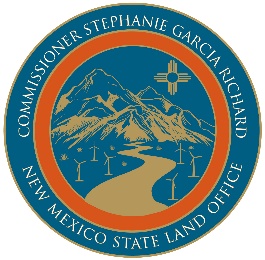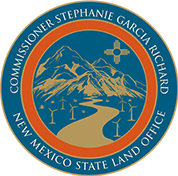
Gu’waa’dzee! Hi’na’mé bur’ai’kaa, yaa’kaa hanuu é hopunii waa’sht’ii. Hello! My Keres name is “butterfly” and my clans are Big Corn and Little Oak. I am from the Pueblo of Laguna and the Mescalero Apache Tribe. My parents are Ryan and Melissa Riley. My maternal grandparents are Evelyn Robinson from the Big Mouth family (Mescalero and Chiricahua bands of Apache) and Rudolfo Guerra. My paternal grandparents are Elaine and John Sanshu (Laguna and Acoma Pueblo), and Allen Riley, Sr. (Laguna Pueblo) and Angela Riley (Diné). I have four brothers and three sisters, a niece and nephew from my siblings, and countless other nieces and nephews from my cousins. I have so many aunties and uncles, grandmas and grandpas, that every time I got together with my family pre-COVID 19, I always learned of a new relative, “This is your grandma from this side of the family.” The way my husband, Justin (Laguna Pueblo, Hopi, and Maidu), grew up is beautiful- the community, the ceremonies, the family that never stops growing or giving.
November is Native American Heritage Month. It’s a time to reflect on the contributions of Indigenous people to this state and to this country. It’s a time to also reflect how we can do better by the Indigenous people whose land we have stolen and occupied. As an appointee, I thought that I could separate who I am and my lived experiences from the job I am asked to do. That is impossible in this job. At the land office, I am reminded every day this agency was not created to serve Indigenous people but rather, with the intent to keep Indigenous people from managing our own land. Over the years, I have heard, “You lost the war, this is what our country needed to progress” or “Why do you need to always live in the past?” Indigenous people are not antiquated relics of a romanticized Wild West land grab.
Indigenous people are very much present and we have survived brutalization, genocide, and displacement for centuries, despite being severely restricted when accessing land to care for it, to hunt, or to visit sacred areas. As climate change becomes more urgent, the reliance on Indigenous knowledge increases; the irony is that Indigenous people are often targeted with state sanctioned violence when landscapes and water are being defended by its original stewards and allies. Victoria Tauli-Corpuz, a Philippine woman and activist, wrote, “For generations, we have accumulated intimate and detailed knowledge of the specific ecosystems where we live. We know every aspect of the plant and animal life, from mountain-tops to ocean floors.” In California, where we saw unprecedented fires claim lives, homes, and businesses, displacing thousands of families, we also saw the state essentially plead with the Karuk people to help guide controlled burns to reduce the harm and plan for the future. The irony, again, is that when we are displaced or restricted in land access, we lose our ability to steward the land to preserve its resources. The Karuk people were legally banned from cultural practices that include land maintenance, a framework that virtually universal for Indigenous people across the globe. The same is true for Indigenous peoples in the Southwest. Pueblo and Diné (Navajo) people consider Chaco Canyon and Bears Ears sacred landscapes.
I am so proud to follow the leadership of Commissioner Garcia Richard, who signed the executive order to halt new oil and gas leasing in the northwest corner of the state. We are developing a tribal consultation policy that will guide the land office into the future of true tribal collaboration and community input. Through my time in the land office, I have new, deeper appreciation and unconditional love for my own culture and language, and the tribal leaders who must play the roles of spiritual leaders, economic developers, negotiators, and policy experts in their short terms of office.
This Native American Heritage Month, and every day after, I humbly ask you to reimagine a future where we take better care of our land and water, thereby securing a future for our students, our beneficiaries, and their families.
Rachael Lorenzo
New Mexico State Land Office, Assistant Commissioner of Engagement | Tribal Liaison
